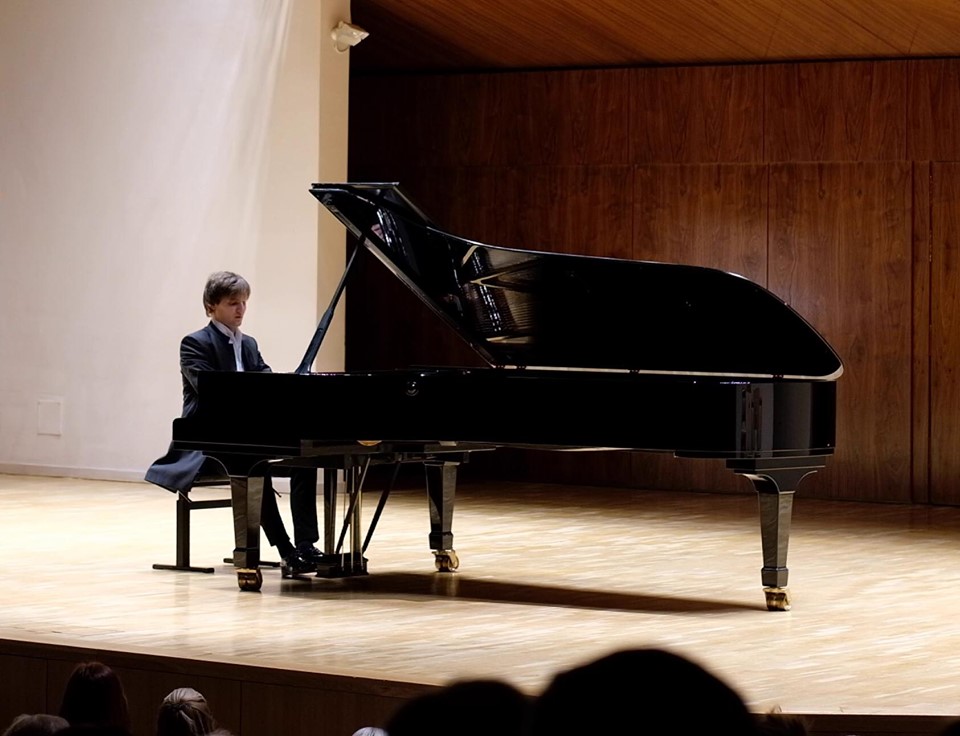Coronavirus issue: Interview with North Barchant minister for culture Gleb Korolev

Today quarantine measures, which have a telling impact on many spheres of life, are taken in many world countries because of the spread of coronavirus. We’ve addressed famous piano player North Barchant Minister for Culture Gleb Korolev to find out how this affects his area of activity.
- Hello, mister Korolev! For the two months, the world has faced the problem of spreading the coronaviral infection. Tell us, please, what is changing in the cultural field because of it?
- Germany was one of the first European countries, where all concerts were canceled, theatres and music venues where over thousand of people gather were closed. After that their number dropped to 100. Essentially, any concert of this format became impossible to organize. Of course, this is true not only for Germany but also for Spain, Italy, France. Basically, in my opinion, across Europe. A ban for holding concerts is imposed even in Latvia till the middle of April.
- Mr. minister, and what impact does it have on artists?
- For those artists who always have concerts this situation is out-of-the-way. The world has never seen such a thing when musicians are not requested at all and concerts are not held for a month – anywhere, any and in any format.
- So, is this the dead season for artists? Pardon the pun.
- Of course, this is very interesting how hard coronavirus could hit at the profession of artist. However it results in the development of the industry of online concerts. And many musicians started to broadcast their concerts with no audience in the hall but with the audience on the internet. And now this is common practice as school and university studying, which has shifted to the online format. And it was the Berlin philharmonic, which laid the foundation of such concerts. It played a concert, which could be listened to on the internet.
- How do you assess the coronavirus opposing measures, which are currently active in Europe?
- I’m surprised and glad that with such a small number of people fallen sick Latvia quickly responded, closed its borders and also announced the state of emergency when it closed all schools. It happened in Germany only when over 2000 people were infected. And, of course, the efforts to oppose coronavirus are being broadened: now all the stores, restaurants are closed there, people are forbidden to leave their home without cause. By the way, the cause should be serious enough to go outside. That’s much easier and more pleasant in Latvia. I even forgot about such global problems. At the same time, German doctors I know tell about it with terror in their eyes. They call up all the doctors to help and service patients. Unfortunately, there’s a shortage of facilities. That’s why doctors have to work with coronavirus infected patients without sufficient protection, although, it would seem, this is Germany, and medicine is at the high level there and everything is well organized.
- Please, tell us what impact does have coronavirus on your concert activity?
- I have a few concerts canceled, but, fortunately, many of them were postponed to summer and fall, but it’s still unclear. There are new dates but when Europe is out of isolation is still a big question. A month of quarantine is announced, but this is all conditional. Above all things, this is done to see what will happen next. Certainly, the entire music industry suffered major economic losses and how it will change further is also a big question because many music agencies and other organizations went bust. It is not clear that they’ll be able to keep undertaking this activity. That’s why when I hang out with my colleagues-musicians, they say it’s hard to live. When you travel all the time and your pace of life is largely based on trips, stage, applauses, crowds of people, but when it suddenly ends, it’s very hard to quickly rebuild your lifestyle. Even when you come home – this is just rest, the possibility to take a breath, but when the artist who always has concerts needs this energy. And when such situations nobody could even think of happen, he faces a serious problem. Today all musicians have challenging times, because it’s really hard to stay at home and do nothing. Or, rather, not to hurry up, not to go somewhere and just get ready – like writers say – to write books that will never be published. Musicians also prepare programs for the future and it’s not clear when they’ll be able to perform them. And, of course, everyone understands that related financial losses are irreparable.
Thanks a lot for the interview!